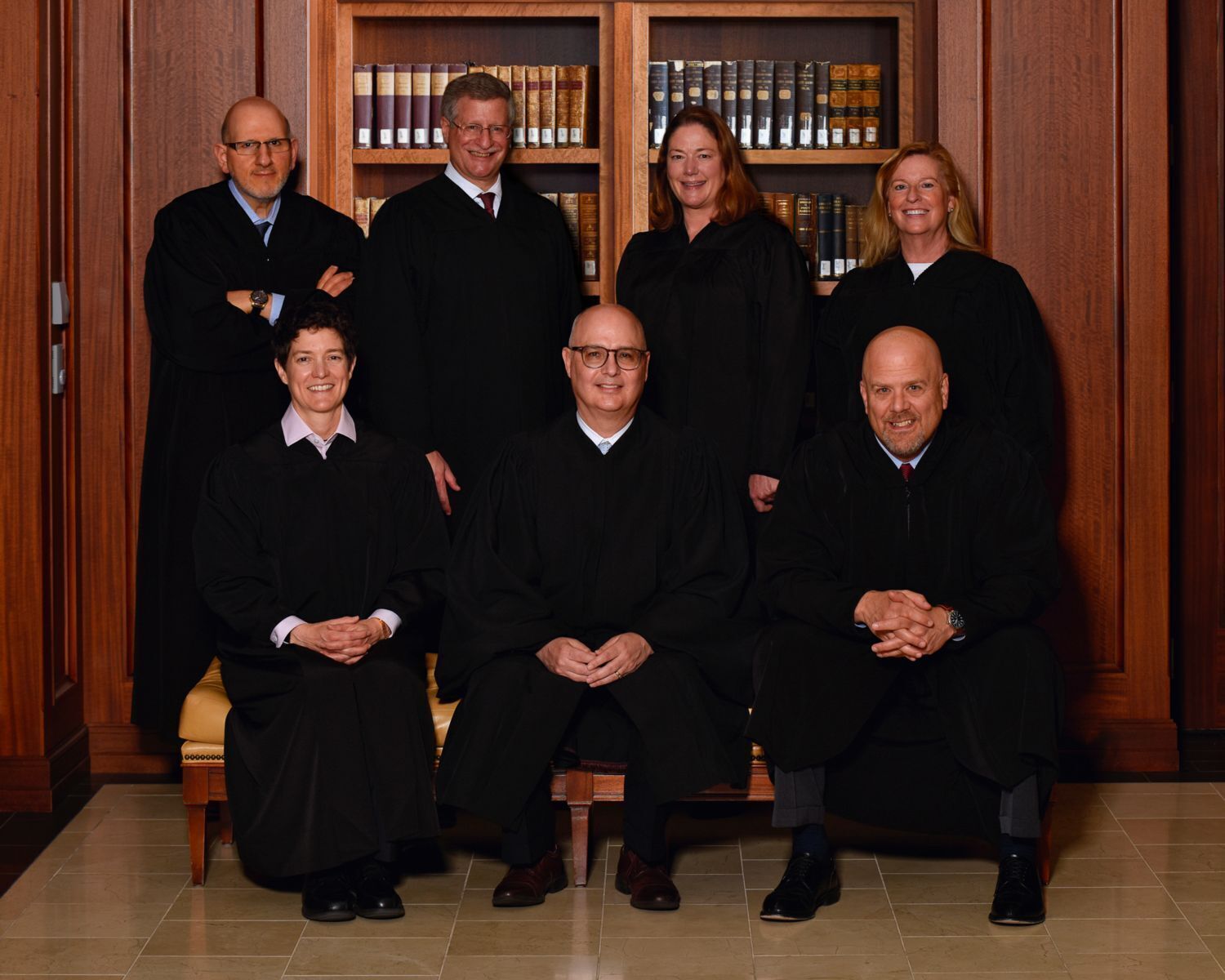Colorado Supreme Court to review constitutionality of mental health law, ‘straw purchases’ of guns

The Colorado Supreme Court has agreed to hear two appeals challenging the constitutionality of state law as being either vague or in violation of U.S. Supreme Court precedent.
The cases have come to the state’s highest court by way of the Court of Appeals, where a panel of three appellate judges declined to label as unconstitutional the law requiring courts to re-commit a person to the state’s mental institute for failing to cooperate in an examination, as well as the legal prohibition enacted after the Columbine High School massacre on transferring firearms to someone ineligible to possess them.
In the first case out of Pueblo County, John Salvadore Cruz spent 1992 to 2004 at the Colorado Mental Health Institute at Pueblo after being found not guilty of murder by reason of insanity. Cruz eventually obtained temporary, then conditional release from the hospital, where he lived in the community under the oversight of the CMHIP.
Mental health professionals became worried about Cruz in late 2017, and he voluntarily readmitted himself. Concerns persisted as Cruz reportedly continued to violate conditions of his release by opening credit card accounts, abusing prescription medication and contacting his girlfriend after being told not to.
CMHIP obtained a court order requiring that Cruz submit to an examination. A psychiatrist met with him, but Cruz soon remembered the man and cut the interview short, believing the outcome was preordained. District Court Judge William Alexander agreed to revoke Cruz’s conditional release on the grounds that he failed to cooperate in the examination.
In August 2021, a panel for the appellate court decided by 2-1 to uphold Alexander’s order. Judge Anthony J. Navarro, writing for himself and Judge Jaclyn Casey Brown, agreed that violations of the law occurred in Cruz’s case. Cruz did not receive an examination within the required window, nor did the psychiatrist record his interview with Cruz as required.
Nevertheless, because the revocation order was based on Cruz’s failure to cooperate with the psychiatric examination, “virtually none of the alleged errors had any bearing on the district court’s finding of Cruz’s noncooperation,” Navarro wrote.
The majority did not analyze whether the Colorado law that requires judges to revoke defendants’ conditional release for noncooperation is unconstitutional because Cruz did not raise that issue before Alexander. But JoAnn L. Vogt, a retired Court of Appeals judge sitting on the panel, wrote a dissent indicating she would have invalidated the law.
“I conclude that the automatic revocation provision is unconstitutional on its face, and that application of the provision here violated Cruz’s right to due process,” she wrote.
Vogt relied on the 1992 U.S. Supreme Court case of Foucha v. Louisiana, in which a majority of justices held that states may only confine people found not guilty by reason of insanity as long as they are both mentally ill and dangerous.
Noncooperation with a mental health examination established neither of those characteristics, Vogt wrote. Further, Cruz’s alleged violations of his conditional release – involving financial and drug behavior – “do not evidence future dangerousness or mental illness, let alone satisfy the state’s burden.”
The state Supreme Court will decide whether the automatic revocation requirement for noncooperation in a mental health exam violates Foucha. The case is Cruz v. People.
In the second case, an Adams County jury convicted Sylvia Johnson on one count of unlawful purchase of firearms. The law, which Colorado’s legislature enacted after the 1999 Columbine murders, prohibits “straw purchases” of guns, in which someone buys a firearm on behalf of another person who is ineligible to own one.
Although it is a felony for an eligible buyer to knowingly obtain or “transfer” a weapon to an ineligible person, what constitutes a transfer is not defined.
The government argued that Johnson visited a pawn shop with her husband, Jaron Trujillo, who she knew could not legally possess a firearm because of a prior felony conviction. Nevertheless, Trujillo browsed the guns with Johnson at the pawn shop before she made the purchase.
Johnson stored the gun in her closet and told Trujillo about it. Trujillo admitted to taking the gun while Johnson was away from the home. Authorities charged Johnson with the firearms offense after police responded to her apartment complex and found the gun on Trujillo, who was not supposed to be at Johnson’s home due to a protection order.
At trial, Johnson denied she made a straw purchase and argued that the “transfer” of a firearm required more than simply affording access to someone who is legally ineligible to possess a gun.
“We conclude that the evidence, viewed in the light most favorable to the prosecution, allowed the jury to reasonably infer that Johnson purchased the firearm with the knowledge that Trujillo, who she was aware could not lawfully possess it, would access it to protect himself,” wrote Judge Lino S. Lipinsky de Orlov in a July 2021 opinion of the Court of Appeals.
The panel also believed Johnson had relinquished her ability to challenge the law on appeal as being unconstitutionally vague.
Johnson turned to the Supreme Court, arguing the evidence was insufficient to show that she knowingly purchased the gun in order to transfer it to Trujillo. The justices agreed to resolve that issue, as well as decide whether the law forbidding firearm transfers is so vague as to not clearly delineate what constitutes illegal conduct.
The case is Johnson v. People.














